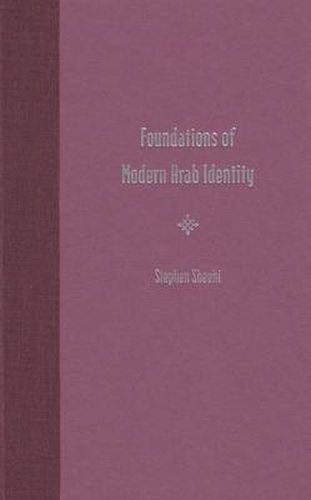Readings Newsletter
Become a Readings Member to make your shopping experience even easier.
Sign in or sign up for free!
You’re not far away from qualifying for FREE standard shipping within Australia
You’ve qualified for FREE standard shipping within Australia
The cart is loading…






This study of the formation of modern Arab identity discusses the work of pioneers of the Arab Renaissance, both renowned and forgotten - a pantheon of intellectuals, reformers, and journalists whose writing until now has been mostly untranslated. Against the backdrop of European imperialism in the Arab world, these literati planted the roots of modernity though their experiments in language, rhetoric, and literature. In both fiction and nonfiction they generated a radically new sense of Arab identity. At the same time, Sheehi argues, they created the terrain that produced an Arab preoccupation with failure and a perception of Western superiority - the terms intellectuals themselves used in the 19th century in diagnosing their cultural crisis. Neglected by historians, this ambivalent and contradictory state of consciousness is at the heart of the ideology of Arab identity, Sheehi says, and describes a variety of subjective positions that Arabs would adopt throughout the 20th century. It became the intellectual quicksand for the Arab world’s confrontation with colonialism, capitalist expansion, and individual state formation. Using psychoanalytic and post-structuralist theory,
$9.00 standard shipping within Australia
FREE standard shipping within Australia for orders over $100.00
Express & International shipping calculated at checkout
This study of the formation of modern Arab identity discusses the work of pioneers of the Arab Renaissance, both renowned and forgotten - a pantheon of intellectuals, reformers, and journalists whose writing until now has been mostly untranslated. Against the backdrop of European imperialism in the Arab world, these literati planted the roots of modernity though their experiments in language, rhetoric, and literature. In both fiction and nonfiction they generated a radically new sense of Arab identity. At the same time, Sheehi argues, they created the terrain that produced an Arab preoccupation with failure and a perception of Western superiority - the terms intellectuals themselves used in the 19th century in diagnosing their cultural crisis. Neglected by historians, this ambivalent and contradictory state of consciousness is at the heart of the ideology of Arab identity, Sheehi says, and describes a variety of subjective positions that Arabs would adopt throughout the 20th century. It became the intellectual quicksand for the Arab world’s confrontation with colonialism, capitalist expansion, and individual state formation. Using psychoanalytic and post-structuralist theory,